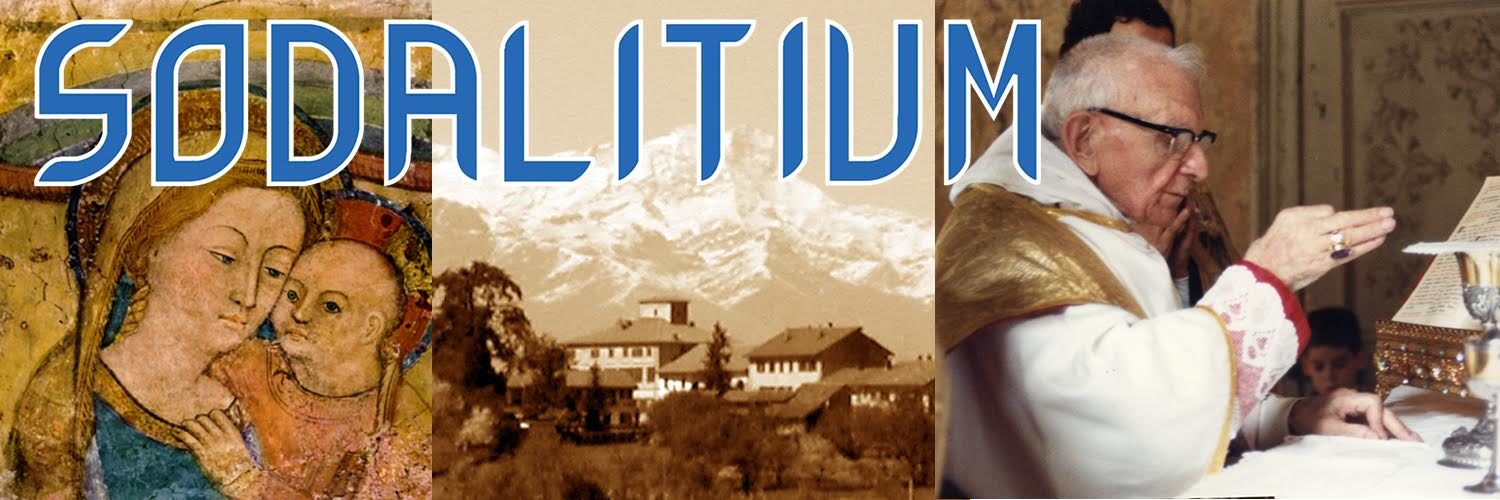Aldo Maria Valli’s interview with Don Francesco Ricossa on the Kingship of Christ https://www.sodalitiumpianum.com/interview-with-don-ricossa-on-the-kingship-of-christ-and-the-100th-anniversary-of-the-quas-primas/ provoked interest and questions from readers of the ‘Duc in album’ blog; in particular, there is an intervention on the relationship between the doctrine of Christ’s Social Kingship and a possible theocracy in Christian society. Father Ricossa answered the question that was posted on the blog.
This is why the Church speaks of Christ’s social kingship and not of theocracy
Dear Valli,
your reader and, from what I see, assiduous contributor, raises the issue of the relationship between the ‘social kingship of Christ’ and ‘theocracy’.
The Magisterium of the Church speaks of Christ’s kingship while, I believe, it never uses the term theocracy. There is a reason for this.
State and Church (or as they used to say Priesthood and Empire) are two perfect societies (i.e. having all the means to realise their respective ends) distinct from each other, having distinct ends: the temporal common good as far as the State is concerned, the supernatural common good (glory of God, salvation of souls) as far as the Church is concerned. Even when, in fact, the head of the State and the head of the Church coincide – as is the case, for example, with the pope in the ecclesiastical State – the two powers are distinct from each other and civil law is distinct from ecclesiastical law, and divine positive law is also distinct from human law. This is easy to understand, not only because, as mentioned, their respective purposes are distinct, but also because while human law (civil or ecclesiastical) judges only external acts but not internal ones, divine law judges mainly internal acts, which God alone can know.
However, while the Church has always admitted the distinction of powers, it has never admitted its separation, indeed it has condemned it. The separation between Church and State or, as secularists say, between the State and the churches, is the ‘dogma’ of modern societies, both when this separation claims to leave full freedom to the churches (which it does not) and when it persecutes or tyrannizes the Church. State and Church – at least in a Christian society – have the same subjects, they have mixed or common issues (such as marriage and the family), they have the same ultimate end, which can only be one. If, in fact, the immediate end of the State is the common temporal good, this however is further finalised, as a means, to the ultimate end that is God.
If Church and State are not separable, if spiritual and temporal power, though distinct, are not to be separated, then the relationship between the two societies, each perfect in its own order, must acknowledge a subordination. Subordination that cannot be that of the Church to the State (eastern Caesaro-papism, first Greek then Russian, medieval Ghibellinism, Anglicanism or Gallicanism etc., which reproduce in Christendom the pagan model) in which the clergy are court chaplains, but on the contrary of the State to the Church, which therefore has direct or indirect power over temporal things when they are linked to spiritual things. This relationship is described as that between the soul and the body or, in medieval times, between the sun and the moon. If ‘theocracy’ or ‘hierocracy’ meant this, then, yes, they would be permissible.
Obviously, we are talking about the ideal constitution of society, from which we are at present far removed; indeed, we are at the antipodes. The crisis we are experiencing involves both the Church and the State, and therefore the whole of society, and the battles that can realistically be fought at present are rearguard battles, in defence of the most obvious principles of natural law alone. Even the principle, albeit disregarded in practice, of the ‘Catholic religion as the State religion’, still proclaimed not only by the Albertine Statute (which was also liberal) but also by the old concordat (which was guaranteed by the Constitution), now seems light years away, and no political party, right, left or centre, no longer has in its programme not only the defence of true Religion, but not even of natural law, and the only difference is what passes between a ‘more’ and a ‘less’ in the violation of said natural law (which is in itself within the reach of simple reason). If moreover the leaders of the political parties most hostile to the Church are praised by the occupant of the Apostolic See and treated as friends, anyone can see the gravity of the crisis we are experiencing.
Jesus Christ therefore reigns more with his punishments than with his benefits, as the world has increasingly repudiated its true King in preference to the ‘prince of this world’. And we pay the consequences of this every day. May God help us, and His most holy Mother, Mary Queen.
Father Francesco Ricossa
